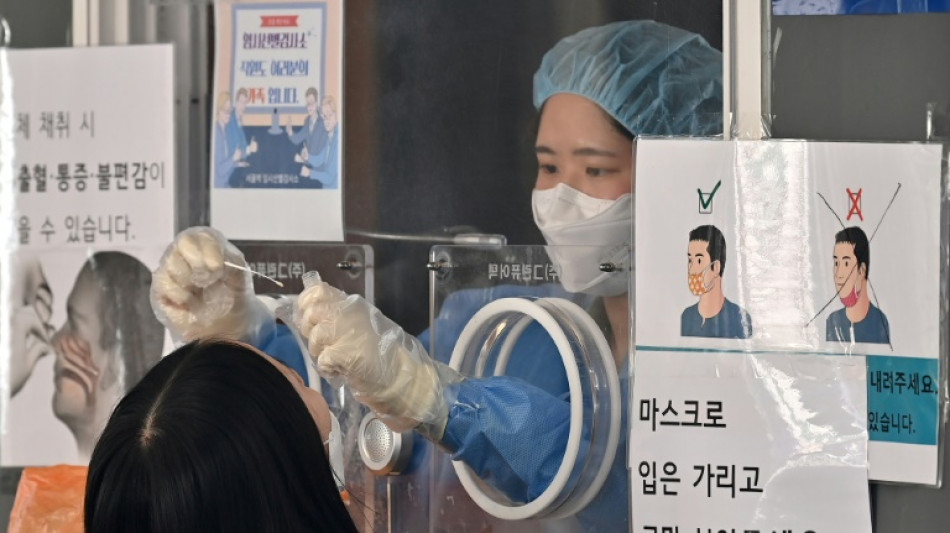
| RBGPF | 100% | 61.84 | $ | |
| RELX | -0.37% | 45.95 | $ | |
| RYCEF | -4.71% | 6.79 | $ | |
| NGG | 0.4% | 62.37 | $ | |
| CMSC | -0.24% | 24.55 | $ | |
| VOD | -0.81% | 8.68 | $ | |
| GSK | -2.09% | 34.39 | $ | |
| SCS | -0.75% | 13.27 | $ | |
| BP | 1.65% | 29.05 | $ | |
| RIO | -0.31% | 60.43 | $ | |
| BTI | 0.2% | 35.49 | $ | |
| JRI | -0.23% | 13.21 | $ | |
| BCC | -1.57% | 140.35 | $ | |
| BCE | -1.38% | 26.84 | $ | |
| CMSD | -0.02% | 24.725 | $ | |
| AZN | -0.38% | 65.04 | $ |
South Korea drops most Covid restrictions as cases fall

South Korea will lift almost all social distancing measures, the government said Friday, citing a dramatic fall in reported cases of Covid-19 after an Omicron-fuelled surge, but the mask mandate will remain.
South Koreans will be required to wear masks indoors "for a considerable time ahead," authorities said, adding that they may lift the requirement to mask outdoors in two weeks' time, if cases continue to fall.
"The midnight business curfew and a 10-person cap on the size of gatherings will be lifted starting Monday," said Prime Minister Kim Boo-kyum.
The decision marks the end of two years of strict distancing requirements, which have put huge strain on small businesses, and indicates South Korea is returning to normality.
Restrictions on eating inside facilities such as cinemas will also be lifted from April 25.
But requiring the public to wear masks indoors was "inevitable for a considerable time ahead," to prevent another outbreak, Kim added.
Officials will reassess whether to lift the outdoor mask requirement in two weeks, he added.
Much evidence suggests the risk of transmission outdoors is extremely low, and many countries, including the United States, have said masks aren't needed outdoors for vaccinated people.
The move comes after South Korea appears to have passed the peak of an Omicron-driven outbreak, with daily cases falling to below 100,000 last week, down from a peak of over 620,000 in mid-March.
More than 86 percent of the South Korean population of 51 million has been fully vaccinated, with the majority also receiving a booster shot.
South Korea is rolling out second boosters to vulnerable populations.
Around 20,000 people in South Korea have died from the coronavirus -- a 0.13 percent fatality rate, which is one of the world's lowest.
P. Hansen--BTZ

 London
London

 Manchester
Manchester
 Glasgow
Glasgow
 Dublin
Dublin
 Belfast
Belfast
 Washington
Washington
 Denver
Denver
 Atlanta
Atlanta
 Dallas
Dallas
 Houston Texas
Houston Texas
 New Orleans
New Orleans
 El Paso
El Paso
 Phoenix
Phoenix
 Los Angeles
Los Angeles



